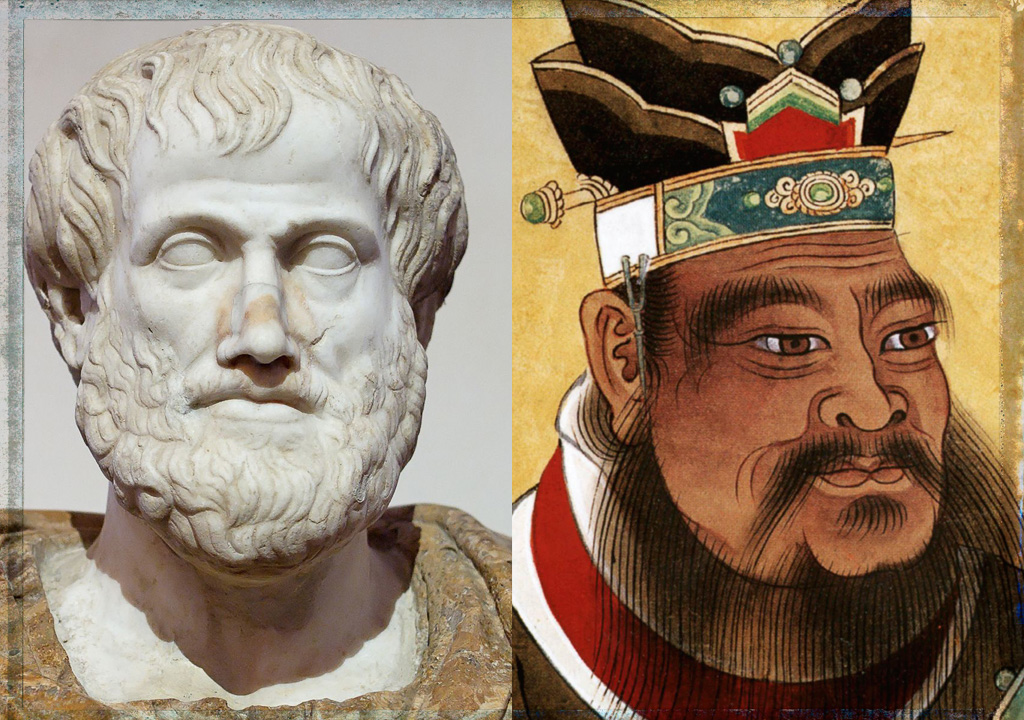Crush #16
Philosophy, like art, always reflects what’s happening in a culture at a given time. One way to define philosophy is as a sustained meditation on the present historical moment and the questions that belong to it, an attempt to understand and comment on the spirit of the times and on where we may be going. Any living culture exists in a state of constant transformation. Some things change quickly, others slowly. Some of these changes are obvious and others are not. Some make the news and are the stuff of ordinary conversation while other things happen below the surface. A culture can be compared in some ways to a lake, where what’s visible on the surface may be quite different than what’s happening below and where there are undercurrents that are difficult or impossible to perceive from above. To understand, we need to plumb the depths, and the same is true of contemporary culture.
We get a clue to what these cultural undercurrents are by listening for the watchwords of a given time and place. One of the watchwords of our time is globalization. This isn’t an altogether new phenomenon, but has been gaining momentum slowly for a couple of centuries, and at an ever-increasing pace. What has made it possible are primarily economics and various forms of technology, and while it isn’t without a down side, globalization on balance has likely produced far more good things than bad. Cultural isolation is never good, and I would say the same about the isolation of knowledge, including philosophy. Let’s remember that philosophy in the West didn’t originate in a cultural vacuum. It began in ancient Greece, and the Greeks borrowed ideas and other cultural elements on a large scale from anywhere they could find them. When you look at the history of philosophy, especially during its more creative periods, you again find thinkers who are reflecting on what’s happening in their culture while also borrowing ideas and engaging in some creative bridge-building with their respective others. What you don’t find, at least as I see it, is intellectual progress brought about by a policy of philosophical isolation. The latter is a recipe for parochialism and stagnation, and we have seen it before in the history of our discipline.
Globalization is here to stay, regardless of how anyone feels about it, and this will have consequences for philosophy which I believe will be radical. Philosophers often use the metaphor of a “turn” when speaking of some new development in their field—think of the linguistic turn, the interpretive turn, the pragmatic turn—and if philosophy in this century is likely to undertake any large transformation, what we may well see is an Eastern turn or, better, some larger-scale dialogue between Eastern and Western philosophy than we have seen at any time in the past. The future is always unpredictable, but what I both hope and believe we’re on the foothills of is an historic interchange between these two great traditions—not a “clash of civilizations” but something far more hopeful. My reason for thinking so lies in the past, which is the only (and highly imperfect) predictor of such things: philosophy reflects and has always reflected what’s happening in the culture, and what’s happening now, in a word, is globalization. Philosophical isolation is sustainable only under conditions of cultural isolation and homogeneity, and both are gone forever.
Part of my hopefulness here stems from my own preference for philosophy that demonstrates connections between schools of thought that too often become inward-looking and moribund for that reason. Whether we’re speaking of individual scholars or entire academic disciplines and schools of thought, the refusal to look up toward some larger perspective, or to look out beyond a small circle of fellow travelers, leads to nothing good, usually some form of scholasticism or orthodoxy. The barriers toward the kind of East-West philosophical dialogue that I have in mind are sizeable and several in number. One of the larger ones is (over-) specialization, which has often been regarded as a necessary condition of the progress of knowledge but which in philosophy effectively narrows horizons that we ought to be broadening. It takes a broad and open mind to look in these two directions at once. Another is a longstanding skepticism toward what’s called “comparative philosophy.” The term itself is often used disparagingly, due in part to scholars at times being too hasty and superficial in their efforts to place on speaking terms ideas or whole traditions that are profoundly disparate. Comparative work can and often has been badly done, but it can also be done well, and on my reading of things, good scholarly work of this kind is gaining momentum. There’s also a sizeable audience for this kind of writing, when it’s properly done.
A third, and maybe the largest, obstacle is the sheer difficulty of the task. When we speak of Western philosophy and Eastern philosophy, we’re not speaking just of two traditions or approaches but of two families (large extended families) of approaches, and when we examine either one closely, things become very complex very quickly. Don’t believe anyone who claims to be an expert on Western philosophy (all of it?), or Eastern philosophy either. Both are far too broad and have too much history to be reduced to something that one person could get their head around fully. Be that as it may, serious comparative work is on the rise and so is something else: philosophers creatively borrowing, refining, and synthesizing ideas across this great cultural divide, with good results. When it’s done well, comparative work isn’t superficial or facile. No one is saying, or should be, that Plato was a Hindu or Heidegger was a Buddhist. They weren’t, but it’s worth noting that Heidegger himself, one of the most important philosophers of the last century, sometimes engaged in the very thing I’m talking about, most notably in his “Dialogue on Language.” He demonstrated, as many others have in more recent years, that it’s possible to speak and to think across boundaries, and while remaining mindful of the difficulty of the task. Both Western and Eastern philosophy encompass enormous internal diversity, and even that’s an understatement. The differences internal to each should never be understated. Good philosophical work of this kind avoids oversimplification like the plague and usually offers specific analyses that place on speaking terms ideas and texts that arose under very different historical conditions. The differences run deep, but they’re not always insurmountable. The challenge of this kind of work is to build bridges where we can and to point out where we can’t, to cross boundaries without losing our bearings, and to avoid oversimplification and distortion.
Even if a majority of philosophers themselves are understandably reluctant to take up this task, I suspect that world events may well drive them to. It’s not uncommon for scholars in any field to limit themselves to a relatively narrow field of research, but there’s a great deal to be said for looking up from the narrow plot of land one has been plowing and thinking bigger. These two solitudes can’t remain solitudes forever, and conditions are becoming right for the kind of rapprochement that I, and a lot of others too, have in mind.


Leave a comment